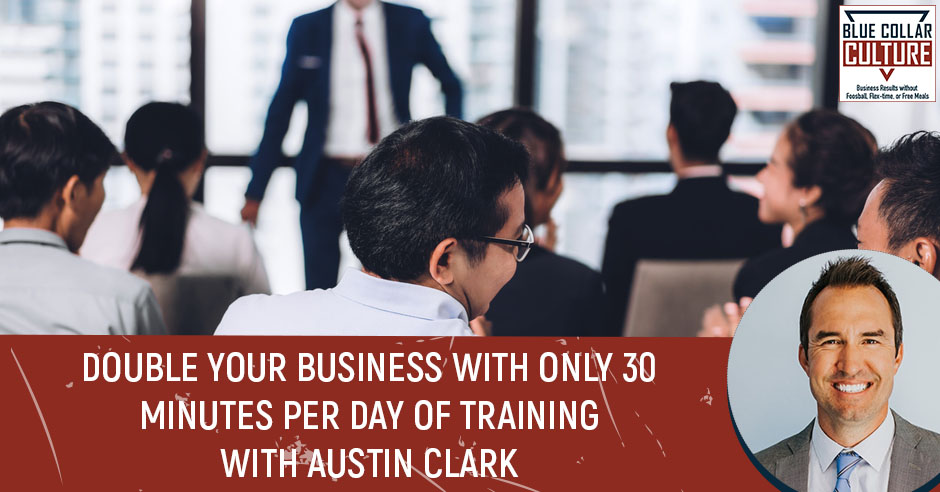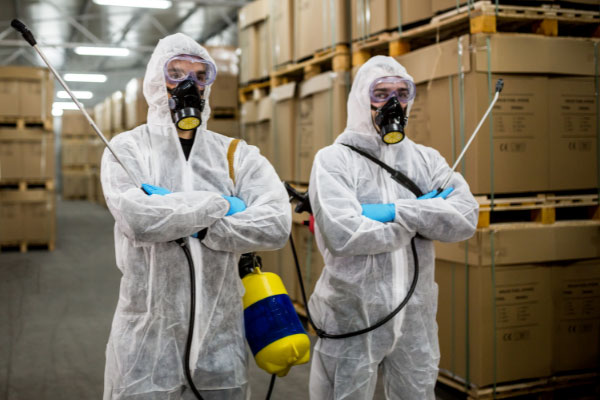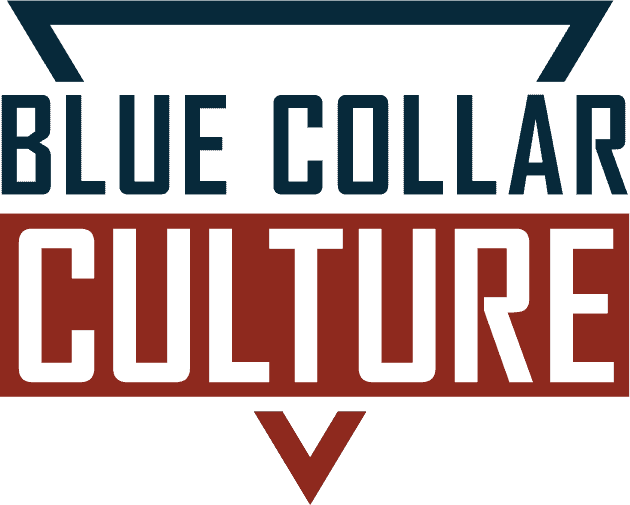
Ryan Englin and Jeremy Macliver are back to hear some secrets from Austin Clark, CEO of Moxie Pest Control of Arizona, on how you can double your business with only 30 minutes of training per day. Moxie Pest Control has grown so much in the span of one year and is expected to double in value even further. Austin shares how luck and his work ethic transformed his view on business and what other factors affected his success. Curious about what he has to say? Tune in to find out.
—
Double Your Business With Only 30 Minutes Per Day Of Training With Austin Clark
We’ve got a unique guest in this episode. We don’t often get to talk to a lot of owners or CEOs of companies in the trades. I’m excited. Our guest is the CEO of Moxie Pest Control of Arizona. He is now working on a brand-new book for the pest control contractor and he has a very popular podcast called Multiply You. He’s out here in Mesa, Arizona with his wife and four children. He loves barbecue, travel, exercise and reading. I also hear he loves business because it provides a lot of services for other companies. I would like to welcome Austin Clark to the show. Thanks for being here.
Thank you so much, Ryan and Jeremy. Thank you for having me on the show. I appreciate that.
We talked a little bit before the show and I got some ideas running through my head and some questions I’d love to ask you, but what I’d love to know a little bit is that you are a very fast-growing branch at Moxie Pest Control. Was it the year 2020 that it grew by 119%? There are a lot of people thinking, “That’s some pretty good numbers.” I know I’m thinking it. You’re scheduled to double in size again. Tell me, what is it about what you’re doing over at Moxie Pest Control that is different that is working so well for you?
I frankly think that most of it is probably a lot of stars aligning. You hear a lot of people joking about overnight successes and that’s certainly not what has happened here. Many members of my team have been working for 1 decade, 1.5 decades to 2 decades. A lot of things came together for us in terms of employees, culture, marketing, positioning, and capital to redeploy and reinvest in growth. We’re very grateful and feel very fortunate about 2020, the year that we had. I know that it was a difficult year for many people. It certainly was for us as well, but we were struggling with issues of hypergrowth and so far, we’ve stayed true to what we thought would happen in our forecast in 2021.
Maybe a couple of small things. I don’t know what we’re doing differently from other home service or home contracting firms. I normally keep my head down and work a tremendous amount. I think that is key number one. We work a lot at Moxie. We work tirelessly and relentlessly. We take a lot of pride in working when our competitors if you will, are taking a break or taking a vacation. There’s nothing against self-care and vacations and work-life balance. For me, in my personal life now, there’s a lot of things that are not done or not achieved or not accomplished. It’s important to me to lead our organization in Phoenix from the front.
Part of that is a relentless work ethic. We also have incredible people. If you have the chance to talk to them over the phone or interact with them at your home, our employees are good, genuine and kind-hearted people who enjoy the service industry. They love solving problems for people. We’ve had a great culture in Arizona at Moxie for a long time. I think that it’s gotten better in the last few years. The pandemic and some of the things that have been going on have made some things a little bit different or a little bit interesting.
If you’ve got a purpose or a mission statement and values that are important for people to wrap their minds around and get behind, pest control is simply the business that we’re in. It’s not what we’re about. People are what we’re about. We’ve got great people here that are very smart, educated and talented. They love doing what they do. They’re happy to come to work each day. When your employees are happy, your customers are happy. When your customers are happy, they tell other people and you’re able to grow. You’re able to be profitable. You’re able to then take those profits and reinvest them to be able to grow your company and service offerings even more.
When your employees are happy, your customers are happy. When your customers are happy, they tell other people and you're able to grow. Click To TweetI was going to call you out, but I think I got the nugget. You said you don’t know what you’re doing differently, but the stars are aligned. Most of the time, I’ve seen stars is because somebody hit me over the head again in the business. It’s a different set of stars I was trying to get to quit swirling. If I’m going to paraphrase what I heard there. That stars aligned and that luck came from working hard, great employees and having a clear purpose statement or vision. Did I hear that correctly?
That’s right.
I’d love to dig a little more into those great employees and the purpose statement vision because from what I’m hearing on the street, there’s not a lot of great employees anymore. How did you find them?
I, Jeremy, would vehemently disagree with that. I would hope that anyone reading now, whether it’s now or in the future or whenever, consider this. What would you say, Ryan and Jeremy, your guys’ client, the average size firm that you guys work with? Do they have twenty employees?
We are seeing 20 to 250 employees.
Let’s say 100. Do you know how many people live in Arizona? I think all three of us are in Arizona now. At least Ryan and I are. Don’t google it now or ask Siri.
We are all in Arizona now. I would say that about 60% of our clients are here.
How many people live in Arizona? Do you guys have any idea?

I think it’s over 6 million and I’m not going to ask Siri now.
You’re right. $1 goes to Jeremy. You went over Ryan. I’m sorry. If it’s for The Price is Right, you won’t win. The last time I asked Siri or googled, it was 7.2 million people. For those of you that are reading now and you have an average of 100 employees or even 200 employees, all you need is out of 7.2 million people to go find 100 of them. That’s it. With the things that have changed in the last few years with remote working, that opens things up to the rest of the United States or the rest of North America or the rest of the world.
I understand in the trades that you’re providing a service like pool services or landscaping or pest control or whatever it is, that might be a challenge to have someone do that remotely. You can have done a lot of the CSR work remotely. You have 7.2 million people that live here in Arizona and you need 100 of them. I would like to think that I’m inspiring our management team. If you ask them, they’re probably like, “Austin’s constantly barking at us.” In Arizona, I think we’re at our low point. We’ve got about 85 employees now and that balloons up to about 120 to 140 in the summertime.
I’m constantly telling our management team, “All we need is 100 of the best people that live in Arizona. Go find them. Where are they? What are they doing? Where are they working now?” You’re A players are not unemployed now. They’re not collecting a check from the government now. They are working for your competitors or across parallel industries. Go find them, headhunt them and be creative. It’s the same way that you approach marketing.
When you approach marketing, you create an avatar of your ideal client. From there, you say, “Where do they shop? What education do they have? How much education do they have? Are they shopping online or in the store? Are they more of a Walmart or a Nordstrom’s type person?” You create an app. You do the same thing for your employees. Where are they working now? How much education do they have? What’s their pay range? What’s important to them?
You can go physically meet them, but you go meet them with ads on Facebook or Instagram, Indeed and you have a compelling story or copy to be able to have them click or capture some of their info so that you can get a chance at visiting with them. Describe why your firm is so great and why they should be with you rather than where they are now.
Austin, before I ask you the next question to keep the show going, I want to make sure I ask one question to clear the air for all of our audience. We did not pay you to say that, nor did we prep that answer. Is that correct?
Luck comes from working hard, having great employees, and having a clear purpose or vision. Click To TweetThat’s correct.
I want to make sure that everybody hears that. That was not a stage question. We had no clue because that sounded exactly like what we said over and over. Somebody else that’s successful at this saying, “We only need 100.” Quite honestly, I bring it down a little bit tighter than that sometimes, Austin. We only need 100, but we already have 79 of you here. We only need 21 more. That’s all that we need.
It’s beautifully said. We’d go to market for them. It’s a marketing activity. It’s not an HR function. It’s the same as we would do for any of our clients. With that, I would love to hear a little bit of where you were leading that to with that purpose statement, that vision because you’re inspiring and attracting the right ones to us, that right 100. Tell us your purpose vision. Let’s dissect it a little bit. How is that attractive in the marketplace?
Moxie is a pest control company. You hear nothing of pests in our purpose or in our mission statement. People are what we’re about. The pest business is the business that we’re in, our team talents or things that we want to be important to people without, so we’re not looking to put square pegs into round holes. We want them to be kind already. We want them to be happy and smiling already. We want them to be collaborative already. Do not try to force someone to be something that they aren’t already. You’ll spend a lot of money and you’ll become very frustrated.
We want people that come that way. When they hear that, we want for it to resonate inside of them. Being kind is a good thing. Being collaborative is a good thing. Improving the quality of people’s lives is a great thing. I can see how I can do that in the pest space or in any other space. That would be a great purpose or mission statement for any organization. When we’re doing reviews or interacting with employees, whether it’s a monthly scorecard review or a weekly error log review, we are constantly tying those values back to all the interactions we’re having.
“You did great here. You could show more improvement here. These are some specific things that we think you could improve upon. What do you think? Where would you like to improve? What goals do you have set for yourself personally and professionally in the month of December? When we meet again in a month, what are the things that you’d like to have accomplished between now and then?” That’s how some of that conversation goes, but that’s our stated purpose. We made it. We hire slow, fire fast, and want people to take those things seriously.
We talked a little bit beforehand about hiring in general and how there are no good people. You’ve already dispelled some of those myths by saying, “You don’t need a lot of them. You need to find the select few.” What are some things you’re doing? We want to bring it down a little bit. Maybe there are one or two tips that you can give for those reading now,. You’ve seen something very successful that the audience could go back to their office tomorrow and go implement and maybe get some success. What are a couple of things?

I would say 2 or 3 things briefly. You’re probably doing a lot of the right things already. Do more of that. I will say I’m no perfect pro recruiter if you will. Not by any means. I don’t know that our people are necessary, but I do know that we’re putting a tremendous amount of time and effort and budget into that now. We’re seeing results. In the last few years, we’ve certainly seen it change. We have probably put 2 to 3 times as much effort and budget for about 50% of the results. I wouldn’t even call it struggling, but we have different results now than we did a few years ago, but we’re doubling down.
I think it’s a fantastic time to double down because Ryan and Jeremy, if your clients are, “We can’t do it, Ryan, for this reason. Jeremy, it’s impossible for this reason,” it’s not true. You guys got to knock off that attitude about it. Whether you think you’re right or you think you’re wrong, you’re right. It is a matter of mindset. Do all the same things that you’re doing and get on Indeed. Put ads out on Craigslist or on ZipRecruiter. Hire a recruiter. Do those sorts of things.
I’m going to say something that is not revolutionary, and Jeremy alluded to this a while ago. You already have some incredible employees that work for you. They have been there for a while, are bought in, happy, promoters of the company and of the values and of your purpose. Go talk to those people. Take them to lunch. Write them an email and say, “We are looking to hire 5 people, 10 people. You are one of the best in this business. We would love to be able to attract and find more people. Why are you here? How could we find more of your friends?”
You don’t want referrals from your C players. Don’t ask your worst employees where their friends are because they’ll be lining up at your door. You need to ask your A players what it is that they love about working there and go and see if they have people and you put together a referral bonus for employees, one that could fit any budget or any timeline that you might have. You can be creative about that. We’ve had a great amount of success with that here.
By the way, friends recruit friends. They want to work with their friends. We’ve seen a lot of great results there. Double down on what you’re doing, then put together an employee referral bonus now and launch that before the end of the year. This is something that you can put together inside of a week and launch a week later and have results that same week if you’re feeling pain with employees.
Something you said a little while back when you were posting those ads that resonated with me. Make sure that your ads are compelling. Don’t put the same boring job ad out there that everybody else does. Don’t copy your competition and go, “It works for them.” You don’t know that it works for them.
Has anyone read an ad lately? I hadn’t read them for about a quarter and I popped on. The only thing more boring than I’ve ever read in my life is my college school books, my textbooks. You have to have some personality come through there and take bits and pieces of either competitor or have your in-house copy for some person writes something that’s compelling. Don’t make it harder for people to want to work for you or with you than it already is. You have to give them a reason to click that button or apply with your firm.
Do not try to force someone to be something that they just aren't. Click To TweetI’ve heard this a couple of times. There’s this mindset out there. There’s a belief that we need to make it hard for them to get a job with us because the harder it is to get a job, the harder it is for them to leave. I don’t believe that. I’m not sure that’s true, but some people have this mindset. “Nobody cares. I’m going to make them jump through all these hoops and figure it all out. If they make it that far, I’ll go ahead and keep them.”
I’m a fan of top grading, too. Dr. Brad Smart wrote the book Topgrading. Full disclosure, I’ve never read it. I understand the principles inside of it. His son, Jeff Smart, wrote Who, which is more for simple people like me, larger font and less of a workbook. I do think that you certainly need to have a systematized way of recruiting and hiring and onboarding and whatever else. It is an employee’s market now. I don’t know that makes sense to make it more difficult than it needs to be. Don’t beat them up too bad.
One of the things that we talk a lot about is finding people who want to do this work. I don’t know what you have over there at Moxie, as far as developing people. Do you have any training or coaching programs? Is there anything that you’re seeing working where you bring in people that don’t quite have the skills and you’re willing and able as the employer to help them grow into that role? Do you do anything over there at Moxie?
We have a training platform. We prefer people with no previous pest experience because we don’t want them to come over with that. It’s certainly not bad ideas, but we don’t want to have to break down barriers that don’t exist with a blank sheet of paper. We pay people to train. We pay people to get their licenses. They’re on the clock when they go down to the state and get their tests. We pay for all of the licensing, for all that. We make the barrier to come on board easy and simple. The other thing that I share with people that surprises and I mostly share it with competitors, but it mostly surprises them.
We invest a tremendous amount of time and money in developing our people. It doesn’t matter who you are inside of the company. If you’re in our contact center and work in inside sales or on a retention team or a commercial field person or a residential field person, you are receiving at least 20 to 30 minutes of instruction and training every day, no matter what. When I share that with people, they say, “How do you afford that?” We’ve been doing it since the day we opened our doors.
In my mind, I’m thinking, “I don’t know how you afford not to do that. Normally, the firms that are taken aback by that are smaller firms in terms of employee count, revenue or whatever else. We view employee training and development as a huge investment. I truly believe that that’s what it is. We came across a case study several years ago. In terms of what an employee wants, it was two things and these are A players. One, they wanted to have a good, healthy, two-way relationship with their direct supervisor. They wanted to have a great relationship with that person. Second, A players constantly want to know how they’re doing. “How am I doing? How can I improve? How can I do better? What’s next for me? What does advancement look like? How can I take on more responsibilities to make more money or to receive compensation?”
They want to have a great relationship with the person that directly manages them and they want to know how they’re doing. We let our employees know how they’re doing because each position has a scorecard with 7 to 12 outcomes. After those outcomes, we have them set monthly goals. We have a rating system for how well they’re doing with our core values or team talents. We go to work on those things every month and it’s a point of conversation throughout the day and in our chats. It is neat to see people level themselves up.
Half a dozen or a dozen other things or tools that we use are ways that we’re able to take people that have no experience, just the willingness to be able to level them up and get them trained to be able to provide great service at your place of business or your home very quickly. That’s what some of the training and development looks like there. We have other stuff. If people want to lose weight, we’ve got programs for that. If they want to better handle their finances and know where their money is going, we have programs for that. There’s a lot of things that we do to be able to invest to have an improved personal life as well.

As we get ready to wrap up here, I want to summarize some of the things that we say because there was a lot. We back up. The first thing is to get clear on that vision and that purpose and make sure that you know what you’re out there communicating to everybody else. It’s how I say it. What is it about you that makes you different, hiring people that are aligned to that?
From there, keep doing what you’re doing but maybe get your marketing team involved. Get a second set of eyes on it. Go to your existing team and talk to them about referrals. Finally, when you train people, realize that you’re making an investment in them. I love what you said about how you bring people in with no pest control experience. You put them through the training. You get them licensed. You pay for all of that.
Your retention is probably through the roof because people love it when they’re being invested in. They know that you have this investment to continue to help them grow. You’ve mentioned that you’ve been doing some of the personal development stuff. There are a lot of great things you’re doing over there at Moxie Pest Control, for sure. Did I miss anything?
Ryan, that was very well-summarized. There’s a lot of meat and potatoes there and a lot of things that people could take home and put action and see results very quickly.
As we wrap up here, I want to let the audience know that you’ve got your podcast and to go check out your podcast. Also, you’ve got a book coming out. Keep an eye out for that as well. Austin, thanks for being our guest. I enjoyed it. We’ll talk soon.
I’m very happy to be on. Thank you, Ryan. Thank you, Jeremy. Thank you, everyone, for reading.
Thank you.
Mentioned in this episode:
- Moxie Pest Control
- Multiply You – Podcast
- Austin Clark – LinkedIn
- Topgrading
- Who
About Austin Clark
 With years of experience in his field, Austin manages and oversees every aspect of the company. His focus has been on building relationships and growing his team.
With years of experience in his field, Austin manages and oversees every aspect of the company. His focus has been on building relationships and growing his team.
Austin’s goal is to continue expanding, creating more jobs and opportunities, by creating leaders who believe in themselves and will work to achieve their dreams.
Austin earned his Bachelor’s of Science in Business Administration from Arizona State University.
